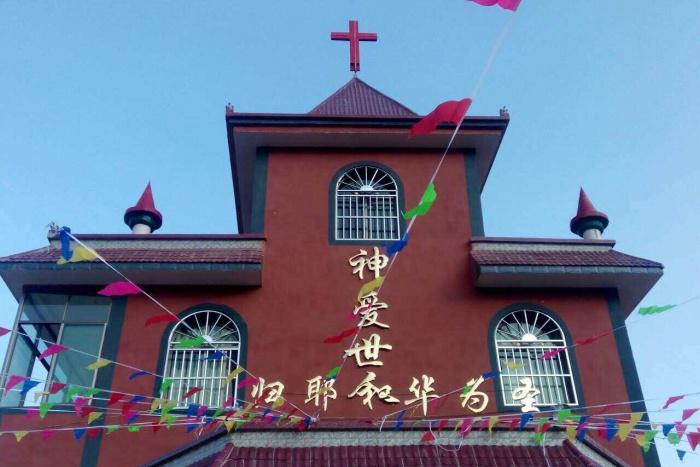Mojiang Hani Autonomous County, located in the south of Yunnan Province, has 25 peoples including Hani, Han Chinese, Yi, Lahu and Blang with 73% ethnic groups of the total population (360,000). There is a sum of about 21, 24,000 ethnic Hani in Mojiang County that are called "the village of Hani".
CCD interviewed Rev. Bai Wei, the chairman of the local CCCTSPM, talking about Christianity in Mojiang.
Once called "the religious county" by the local religious authority, Mojiang has a long history of the Gospel. It's recognized as the county that has the second largest Christians prior to Lancang County.
Rev. Bai Wei says one hundred years ago missionaries from countries like US and Denmark came to Pu'er City and preached the gospel firstly in Jiangcheng Hani and Yi Autonomous County then brought the Gospel to Mojiang. These missionaries learnt Chinese and preached to Hani people who could speak Chinese, and then Hani believers translated the Gospel into Hani language so that more people could hear the Biblical truth.
Different from other minorities like Miao, Lisu, Jingpo, Hani group don't have their own script or the Bible in Hani language. Thus, church members use the Chinese Bible and sing Chinese hymns; only a few sermons are given in Hani language.
Currently local people mainly believe in Christianity and Islam. There are more than twenty thousand Christians who are mostly Hani, Blang, Lahu and Chinese in Mojiang with 77 registered churches and 19 unregistered gathering places. Some villages have many churches. Additionally, there are over 10 churches in a village while another church only has about 20 members, mostly above the age of 60.
In recent years, a couple of "dangerous" churches need reconstruction annually due to architectural reasons. However, the removal and reconstruction need to be pushed constantly for there're few members. Now some believers still gather in "dangerous" churches and some worship God in their homes because their churches have been torn down. "We plan to rebuild five churches every year." Says Bai.
Bai adds, "Except pastoral co-workers in the county CCCTSPM, there's no full-time co-worker in Mojiang Churches. All the preachers are volunteers without salaries who serve while farming lands." Mojiang Churches has more than 300 pastor staff including pastors, elders, deacons and volunteer preachers.
Moreover, the pastoral staff are seniors and the congregation are above 50 years old. There're rare young members in the church. Young people move to cities as workers while few stay in hometowns. So there's lacking young members and also young co-workers in Mojiang churches.
Bai requests prayer that more young pastors can interpret the Bible. Local churches don't have enough spiritual books or books interpreting the Bible.Believers are hard to understand the Bible correctly only with the Bible. "During services, pastors read a passage of the verses and after that seldom interpret but give testimonies." Besides, few Hani members can play musical instruments although they have their traditional dances and instruments.
About Rev. Bai Wei: Born in a Christian family, Rev. Bai Wei was baptized in 1994 and studied theology in Yunnan Theological Seminary. After graduation intending to advance in Nanjing Union Theological Seminary, he changed his mind when an old pastor of a church in Mojiang told him pastors needed here. He serves God and promotes the development of local churches since he began his service in 2001.












